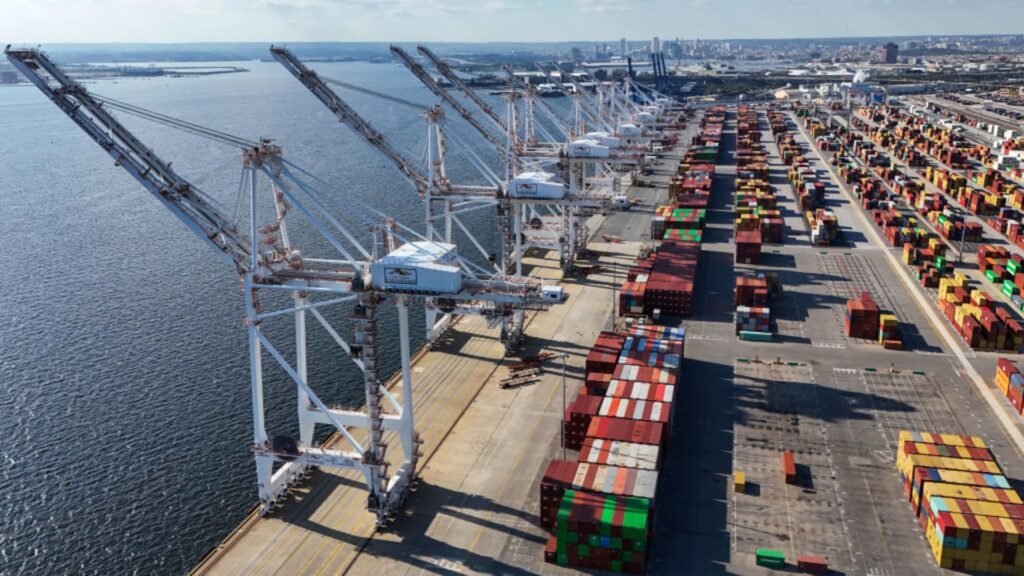An aerial view of the Dundalk Marine Terminal October 03, 2024 in Baltimore, Maryland.
Anna Moneymaker | Getty Images
Shares of Moller-Maersk slumped more than 8% on the Friday market open as European shipping companies fell on the conclusion of a U.S. port strike.
A major union for U.S. dockworkers and the United States Maritime Alliance on Thursday brokered a tentative deal on wages and extended their existing contract through Jan. 15 to provide time to negotiate a new agreement.
A prolonged strike would have provided a boost for European shippers to take a larger share of global supply chain demands.
Maersk closed over 5% lower, while Germany’s Hapag-Lloyd ended 15% lower. Swiss logistics company Kuehne + Nagel also fell 1.48% but ended the trading session slightly higher, up 0.6%.
It follows declines for Asian shippers during Friday’s session, with Japan’s Nippon Yusen and Kawasaki Kisen dropping 9.48% and 9.65%, respectively. South Korea’s Pan Ocean lost 4.77%, while HMM shed 5.06% and Taiwan’s Yang Ming Marine fell 9.08%.
Thursday’s deal ended a strike that had choked U.S. East Coast and Gulf Coast ports since the start of the week and threatened U.S. supply of fruits, pharmaceuticals and automobiles, among other goods.
U.S. supply chains incurred significant disruptions even during the brief walkout, with billions of dollars in goods anchored offshore ahead of the busy holiday shopping period.
Hapag-Lloyd said Friday that it could take around three to four weeks to clear the vessel backlog in U.S. ports.
Ahead of the conclusion of talks on Thursday, analysts at TD Securities had warned in a note that any disruption lasting over a week “would create much larger challenges and would be very disruptive to the overall supply chains.”
The strike — the first in almost 50 years by labor union the International Longshoremen’s Association — impacted operations at 14 ports and included around 50,000 of the union’s 85,000 members.
— CNBC’s Ganesh Rao contributed to this report.


